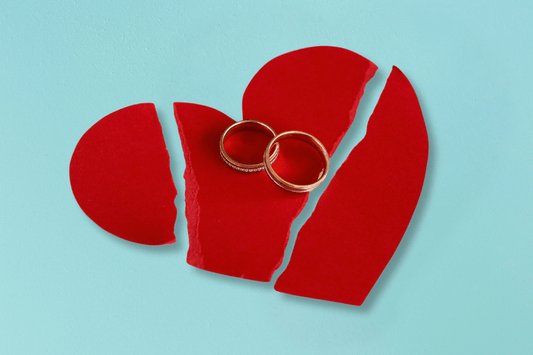“Oh, I don’t know. I don’t think hot flashes are that bad,” said Bridget as she and several other middle-aged women sat around the bistro table at the coffee shop, sipping their latte of the day and commiserating over the condition that would affect them all - menopause.
Tanya’s raised eyebrow indicated she didn’t agree. Her hot flashes were intense, and they happened frequently. One moment she was fine, the next she was throwing off the blankets in a panic and sweating through her pajamas. She couldn’t relate to her friend’s blasé attitude towards hot flashes.
“Ugh, for me it’s the weight gain,” said Barb. “It’s like I don’t even recognize my body anymore!”
“At least we don’t have to take the pill anymore,” offered Angie with a smirk. “I hated the pill. It always made me feel so ...”
“Hey wait - is that a thing?” Tanya interrupted. “My doctor said I could still get pregnant during menopause.”
Menopause is an inevitable part of aging that affects every woman, but that doesn’t mean it treats every woman the same. Some women don’t notice many changes or symptoms, while others experience severe hot flashes, weight gain, moodiness or a host of other common symptoms. Throw in a few old wives’ tales and myths about “the change”, and entering menopause can seem rather daunting.
So let’s just take the myths out of the equation. There are five common myths about menopause that you may be taking as fact. Breaking them down will help you separate the fact from the fiction about menopause.
Myth 1: The age you get your period determines when you’ll go through menopause.

Also known as rattleweed, black bugbane, and snakeroot, black cohosh is an herb that comes from a plant related to the buttercup. With a long history of usage, black cohosh is one of the best-known options when it comes to treating aches and pains, coughs, and most importantly, menstrual issues and menopause symptoms.
Black cohosh can help prevent or minimize the effects of night sweats and hot flashes. It can also relieve vaginal dryness, prevent irritability, and stabilize mood swings. With all this, it’s clear there's a reason why this herb has been in use for centuries!
“I can’t say as I’m sad I haven’t started menopause,” she said. “I was a late bloomer. I was almost 15 when I got my first period. No wonder I haven’t hit menopause yet.”
Although it seems logical to assume that starting your period later means you’ll start menopause later too, that’s not necessarily true. This false perception is based on the idea that each woman only has so many eggs, and when the eggs are gone, menopause begins.
The truth is, menopause isn’t triggered by running out of eggs. Most women start menopause around their early 50s even if they started having periods when they were 11. You can still have eggs and go through menopause as well - they just no longer work.
Want to know the best way to guess when you’ll likely go through menopause?
Look at your genetics. The age of a woman’s mother and other female relatives when they entered menopause is the biggest indicator of when she will likely start going through menopause.
Medical conditions such as diabetes can also speed this process up. At the end of the day, there are a variety of factors that influence when you’ll go through menopause, but how early you started getting periods is not one of them.

Myth 2: Contraception isn’t necessary after menopause.
Red clover, an herb that comes from the flowering plant of the same name, has been used in herbal medicine for many years. Made from the flowers of that plant, red clover contains a natural substance called phytoestrogens, which, as you can imagine, is similar to estrogen, the hormone that fluctuates and then drops drastically in the body during menopause.
Adding estrogen back into your system via red clover has many benefits including making sex less painful, stabilizing your moods by preventing those quick mood swings, and even helping your body get rid of that annoying bloating, because it acts as a diuretic, ridding your system of excess water. What woman doesn’t like to say goodbye to bloating?
Myth 3: Menopause symptoms are temporary.

“I, for one, can’t wait for these mood swings to stop!” exclaimed Angie. “One minute I’m fine, the next I’m in tears. My poor husband doesn’t know which direction is up. How long do you think it will be before I can kiss my menopause mood swings goodbye?”
Most women’s symptoms occur for two or three years then eventually subside. However, for about 20 percent of women, the symptoms will stay with them. Thankfully, there are several ways to treat these symptoms. As the symptoms vary from woman to woman, so does the length of time that women experience them.
Myth 4: Weight gain is menopause’s fault.

“At least your clothes fit,” complained Barb. “I can’t believe how much weight I’ve gained around my stomach! Menopause is the worst - it’s like there’s nothing I can do about. I’ve tried all kinds of diets and exercise plans, and it just won’t budge.”
Weight fluctuations are normal with hormone fluctuations, and THAT’S what Barb is dealing with. Menopause itself isn’t necessarily the cause of weight gain at that stage of life. It’s the changing hormone levels brought on by menopause that cause a redistribution of weight. It can be hard for women to lose weight in certain places, like the belly and thighs.
Lack of sleep caused by other menopausal symptoms such as hot flashes can contribute to weight gain. It’s hard to exercise and cook healthy meals when you’re exhausted. The bottom line is, menopause happens when a woman’s life is already changing and slowing down. This makes it hard to determine what is menopause and what is simple life changes.
Myth 5: Certain foods diminish menopause symptoms.

“My sister told me she ate tofu all the time and didn’t have the night sweats,” offered Heidi. “That’s what I’m going to do. I wonder if switching to soy milk would help too?” Unfortunately, there is no “magic food” that has been scientifically proven to diminish symptoms like hot flashes.
However, the opposite of this has proven true. Studies have shown that certain foods trigger symptoms and make them worse. Alcohol, refined sugars, and spicy foods can make menopause symptoms worse, especially hot flashes. Women who have trouble with hot flashes can try eliminating or reducing these foods and see if that helps.

Myth 6: Every woman experiences the same symptoms.
“My sister told me she ate tofu all the time and didn’t have the night sweats,” offered Heidi. “That’s what I’m going to do. I wonder if switching to soy milk would help too?” Unfortunately, there is no “magic food” that has been scientifically proven to diminish symptoms like hot flashes.
However, the opposite of this has proven true. Studies have shown that certain foods trigger symptoms and make them worse. Alcohol, refined sugars, and spicy foods can make menopause symptoms worse, especially hot flashes. Women who have trouble with hot flashes can try eliminating or reducing these foods and see if that helps.
Myth 7: Menopause ruins your sex life.

“Okay, so I just have to ask,” said Heidi, leaning forward conspiratorially. “Is it like they say? Does your sex life really completely dry up?”
“It wasn’t great at first,” answered Barb with a chuckle.
“But things are changing now. I think I must be almost through menopause, because things are GOOD.”
Many women believe once they’ve hit menopause, their sex life is over. During menopause, estrogen levels drop, causing vaginal dryness. This can make sex painful for many women, but they shouldn’t throw in the towel. With some minor adjustments, women can continue to have healthy, enjoyable sex lives. There are many lubricants and vaginal moisturizers designed for menopausal women that are quite effective.
Another way that menopause may impact your sex life is through loss of libido. While this affects each woman differently and many women don’t experience these issues, there are some simple solutions that you can discuss with your doctor.
Even if not-so-great in the bedroom right now, take heart. Many women report a more active sex life post-menopause! Now that they longer have to worry about getting pregnant and may no longer have kids in the home, they are free to enjoy their partners more in the empty nest phase of life.
Myth 8: Menopause happens suddenly.

“Don’t worry,” said Angie to Heidi. “You’ll get through. It’s not like it’s going to hit you all at once like a ton of bricks.”
“Yeah, I’m starting to see some signs that “the change” is around the corner,” said Heidi, using air quotes.
“It’s SO helpful knowing what’s truth and what’s myth though so I can be prepared.”
Menopause is a gradual process that happens over time. You don’t just wake up one day and BOOM! you’re in menopause. Perimenopause, a transitional period that lasts around four years, comes first. During perimenopause, hormone levels start to adjust and no longer rise and fall as they did since puberty.





